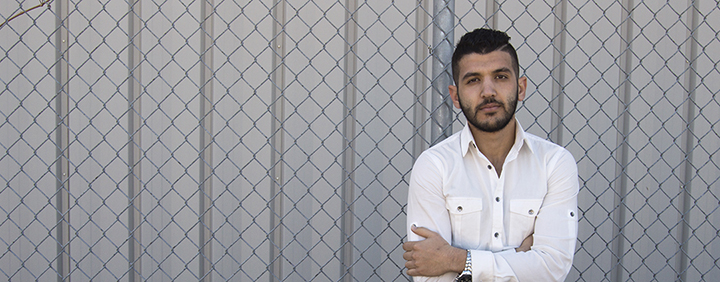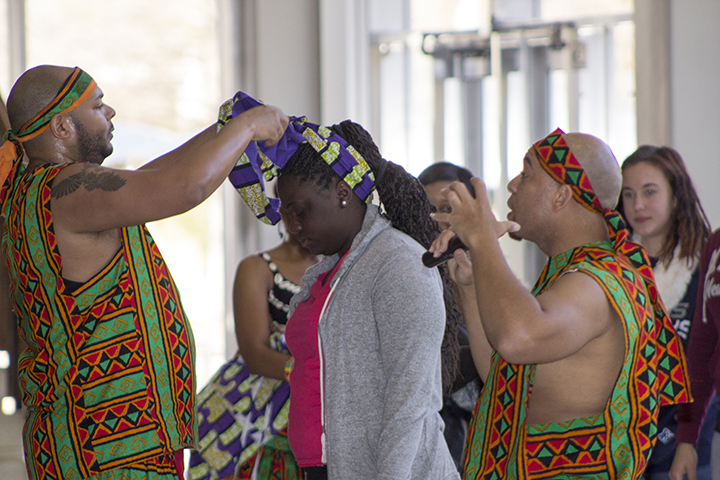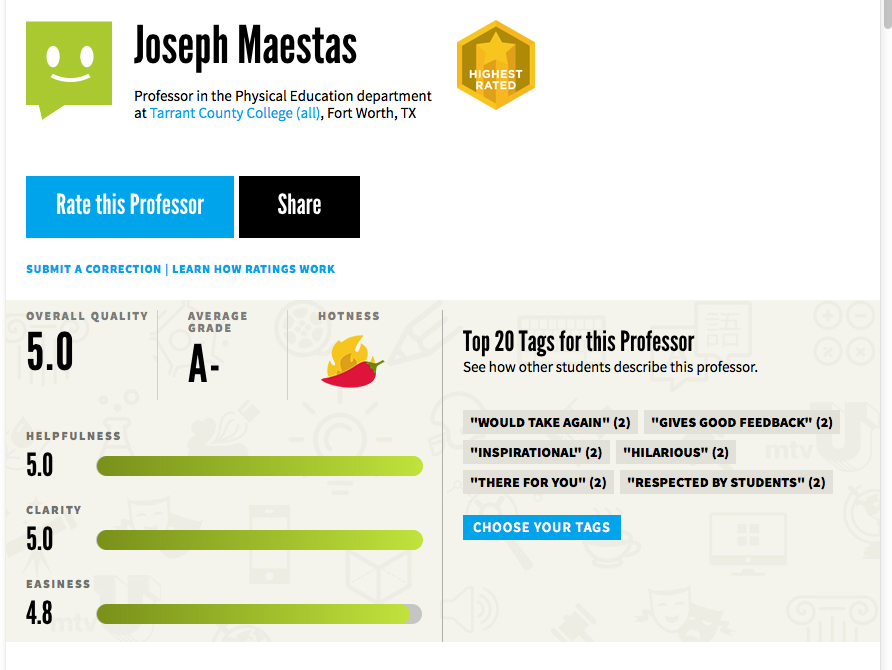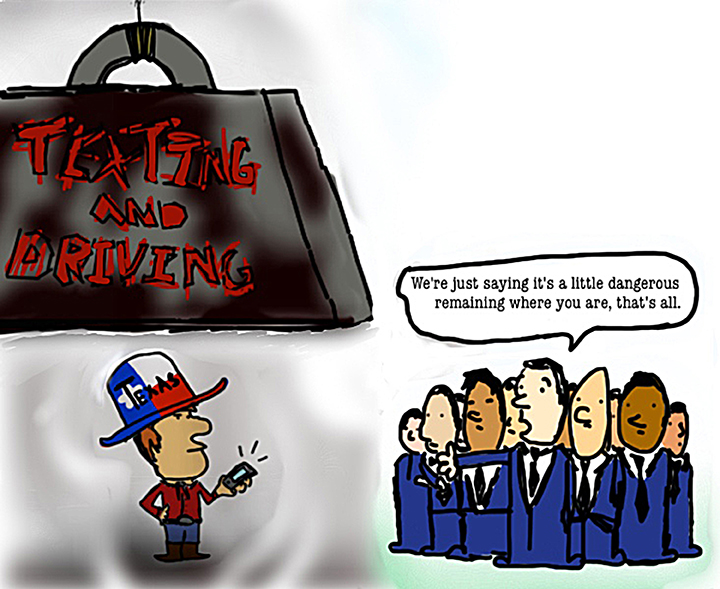By Tiffany Stamness/reporter
Statistics show that one in three people across the country hear, “You have cancer,” a geneticist said Feb. 4 on NE Campus.
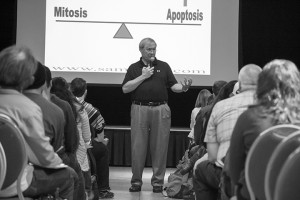
Photo by: Katelyn Townsend/The Collegian
“Cancer — probably one of the scariest words in the English language,” Sam Rhine said.
Having heard this three times himself, he has firsthand knowledge of just how scary the word is.
Rhine received his master’s in genetics from Indiana University and continued his studies at Indiana University School of Medicine and Harvard Medical School. For over 30 years, Rhine has been teaching human genetics to schools around the world.
“All cancer is genetic, but most cancer is not inherited,” he said.
In fact, 95 percent of cancer is not inherited, Rhine said. All cancer originates from one single cell, called a founder cell. Cancer development can take as many as 30 years before it becomes lethal.
This slow growth is why it is important to have early detection of one’s own genetics, Rhine said.
Genetics and inherited are used together, but they do not mean the same thing. For cancer to be considered inherited, it would have to show in every generation in a family tree, Rhine said. Therefore, it has been found that only 5 percent of cancer is inherited.
Science, which Rhine described as the No. 1 scientific journal in the United States, released a cancer study Jan. 2, reporting 65 percent of cancer is endogenous mutations, or cancer from within, that happens no matter what anyone does.
“We can’t stop cancer from happening. We can’t stop mitosis,” Rhine said.
The journal also stated that 35 percent of cancer is exogenous carcinogens and can be prevented by avoiding external factors. These factors can be anything from too much exposure to ultraviolet light from tanning beds, cigarette smoke and many others from a list of 220 causes.
For deaths caused by lung cancer, statistics show 21 percent were smoking the day they died, 61 percent were smokers who didn’t quit soon enough, and 19 percent were never smokers and had never been exposed to smoke.
Recent research has pinpointed when and how cancer can be stopped at the early stages, but the cure is still not certain, Rhine said. As more and more research happens, scientists get closer to finding a cure for cancer at the early stages.
“I challenge all the college and high school students. We need you to get on board and help with this,” he said. “There’s so much stuff that’s exciting going on out there.“
Rhine said today’s youth need to get involved now to help solve cancer. It’s never too late to start solving this “genetic mistake.”
Oncologists have one of the toughest jobs, Rhine said, because they have to first find the cancer and then diagnose which kind of cancer it is. They need all the help they can get in finding a cure.
“What a neat career it would be to help solve cancer,” he said.

























